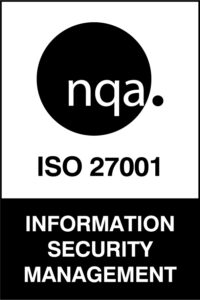With the increasing demand for efficiency, accessibility, and security, public sector organisations are under urgent pressure to modernise their records management processes. Digitisation and scanning are not just options but crucial tools in this transformation, helping these organisations streamline operations, reduce costs, and enhance service delivery. This blog delves into the significance of these technologies and their transformative impact on public sector operations.
Why Digitisation Matters
Digitisation involves converting physical documents into digital formats, making them easier to store, retrieve, and manage. This process is particularly valuable for government agencies, educational institutions, and healthcare providers, which handle vast amounts of paperwork. By digitising records, these organisations can reduce physical storage requirements, enhance data security, and ensure compliance with regulations such as GDPR.
Key Benefits of Digitisation
- Cost Savings: Eliminating the need for extensive physical storage reduces real estate and maintenance expenses.
- Environmental Impact: Reducing paper usage helps lower the organisation’s carbon footprint and minimises waste.
- Enhanced Collaboration: Digital records can be easily shared, facilitating better teamwork and decision-making.
- Error Reduction: Minimises human errors associated with manual document handling and data entry.
- Process Automation: Automates routine tasks, such as indexing and retrieval, improving overall efficiency.
The Role of Scanning in Digitisation
Scanning is a fundamental component of digitisation, enabling organisations to electronically capture and store documents. Beyond the immediate benefits of improved accessibility and reduced search time, scanning plays a vital role in preserving historical records, ensuring their longevity and safeguarding the organisation’s rich history.
Key Benefits of Scanning
- Improved Disaster Recovery: Digital backups protect records from potential disasters like fires or floods.
- Space Optimisation: Reduces the need for physical document storage, freeing up office space for other essential functions.
- Enhanced Data Analytics: Integrating digital records with analytics tools allows organisations to gain insights that improve service delivery and operational efficiency.
Enhancing Security and Compliance
Digital records provide superior security compared to physical documents. Public sector organisations can implement encryption, access controls, and audit trails to protect sensitive information and ensure compliance with data protection regulations.
Security and Compliance Advantages
- Advanced Encryption: Ensures sensitive data remains protected from cyber threats.
- Access Controls: Restricts document access to authorised personnel, reducing security risks.
- Audit Trails: Tracks access and modifications for transparency and accountability.
- Automated Compliance Checks: Reduces the risk of regulatory violations and penalties.
- Enhanced Privacy: Digital records can be anonymised or redacted to comply with privacy regulations.
Boosting Accessibility and Efficiency
Digitised records are not confined to physical office spaces. They can be accessed remotely, empowering employees to retrieve and share information from any location. This flexibility is particularly beneficial for government agencies and educational institutions that require real-time data access, enabling a more efficient and flexible work environment.
Accessibility and Efficiency Benefits
- Remote Work Enablement: Secure access to records from any location supports a flexible work environment.
- Faster Response Times: Quick access to digital records enhances public service efficiency.
- Streamlined Processes: Reduces the need for manual document handling, minimising errors and improving resource allocation.
- Enhanced Collaboration: Digital records allow seamless information sharing among stakeholders.
Conclusion
By embracing these technologies, public sector organisations can enhance operational efficiency, security, and accessibility, ultimately improving service delivery to the public. This improvement should instil confidence in the audience about the positive impact of digitisation.
By partnering with DSM, companies can ensure their digitasation projects are managed securely, operating at the top of efficiency. Our commitment to excellence and customer satisfaction makes us a trusted partner in the public sector.
For more information on how DSM can support your document management needs, visit our Document Digitisation & Scanning services and contact us today. We look forward to helping you with your digitasation requirements.













